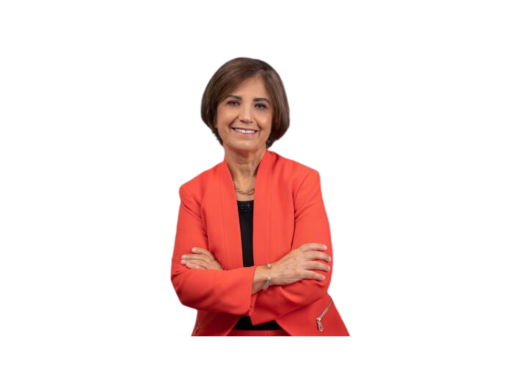CMF Community Voices
CMF Community Voices features a series of conversations and insights from leaders across our community of philanthropy. This curated collection of blogs and Q&As lifts up inspiring voices from changemakers providing reflections in the areas of Equity, People, Practice and Policy, with equity at the center.
A Paradigm Shift From Individual Giving to Collective Giving in the Arab American Community
The Center for Arab American Philanthropy (CAAP) is a national community foundation and CMF member, and one of four national programs of the Arab Community Center for Economic and Social Services (ACCESS), the largest Arab American community nonprofit in the United States.
“We believe that Arab Americans cannot be full contributors in American civil society without being a giving community,” Maha Freij, president and CEO of ACCESS, founder of CAAP and CMF trustee said.
Freij shared that the creation of CAAP stemmed from the ACCESS vision of a just and equitable society for all, with the full participation of Arab Americans.
“CAAP is designed to inspire, encourage and educate Arab Americans about the ways that they can be strategic in their giving and equip them with the tools through either donor advised funds, giving circles and eventually endowed funds and impact area funds to unlock their giving potential, but at the same time, have that collective power of Arab American giving to improve communities here in the U.S. and all over the world,” Freij said.
CAAP, through ACCESS, is focused on engaging its community to come together to shift from individual giving to strategic collective giving.
“We are working to create a paradigm shift one individual at a time. The Arab American community is very generous, but on an individual level because that is what they know. We are taking that and we’re saying, ‘Ask yourself a question about your purpose and about making a difference bigger than you, not only within your house. What are the problem areas that are important to you, what’s your budget and how can you bring other people to the table?’” Freij said.
CAAP also continues to work to encourage giving on a regional level.
“We consider it a success if they start thinking about how they can make a difference in the region they live in. We will support their giving to the places they are originally from, but we really see a difference at the regional level. As they become more strategic, they become more inclusive about looking at the problem area they care about,” Freij said.
Although CAAP is a national community foundation, being in Michigan allows for more frequent connections with the Arab American community because of the makeup of the population.
“Michigan has the most condensed Arab American population in the country, so from that perspective, the civil society is more developed here than in any other state,” Freij said.
According to Freij, even on the national level, a lot of the philanthropic leaders in the Arab American community are based in Michigan.
“So, our mechanism is to give them the tools, like an impact area fund, for example, that allows them to maximize their impact by bringing others in the community together and to give them the support they need,” Freij said.
The Arab American population is very diverse and according to Freij, this work has required a lot of credibility and passion to support the community’s ways of giving.
“We are a group of people that immigrated at different times, and we come from 22 different countries that make up the Arab world in North Africa and the Middle East. We don’t look alike; we don’t think alike. We come from a non-industrialized region that is war torn and so people don’t come with that strategic thinking when it comes to their giving; they give emotionally and individually. We are working to change that,” Freij said.
Last year, CAAP released the nation’s only research on Arab American giving. A Tapestry of Giving provides new research on the giving attitudes, habits, motivations and priorities of Arab Americans.
According to the research, personal connections play a critical role in how Arab Americans give.
“For organizations and philanthropy looking to cultivate Arab American giving or support, they need to know how important it is for an Arab American philanthropist to have a personal touch,” Freij said.
Freij shared that in order to create a fully engaged Arab American community across the country, the community needs to think about its own giving.
“We need to inspire it and we need to have the ceiling become higher and higher, through education, inspiration and through creating a mechanism where people learn from each other,” Freij said.
Freij said that once an individual unlocks their giving potential, it becomes contagious.
“When CAAP was established in 2010, we had four funds and now we have 180. Sometimes we have people knocking on our doors, everybody has something they want to fix, and they know they can come to CAAP,” Freij said.
Want more?
Learn more about CAAP.
Learn more about Arab American giving through CAAP’s recent research on the giving attitudes, habits, motivations and priorities of Arab Americans.
Learn more about ACCESS.
CMF Community Voices features a series of conversations and insights from leaders across our community of philanthropy. This curated collection of blogs and Q&As lifts up inspiring voices from changemakers providing reflections in the areas of Equity, People, Practice and Policy, with equity at the center.
We are pleased to share a variety of blogs authored by CMF members, that call us in to reckon with our history, consider how we work with and in communities, how we can build bridges to advance racial equity, and how we celebrate and recognize the power of differences. These are the first of many installments of CMF Community Voices as we continue our year-long future-focused 50th anniversary celebration.
Interested in contributing to CMF Community Voices? Connect with our team!
Stay connected with the latest updates on social and with the hashtag #FutureOfOurSector.
